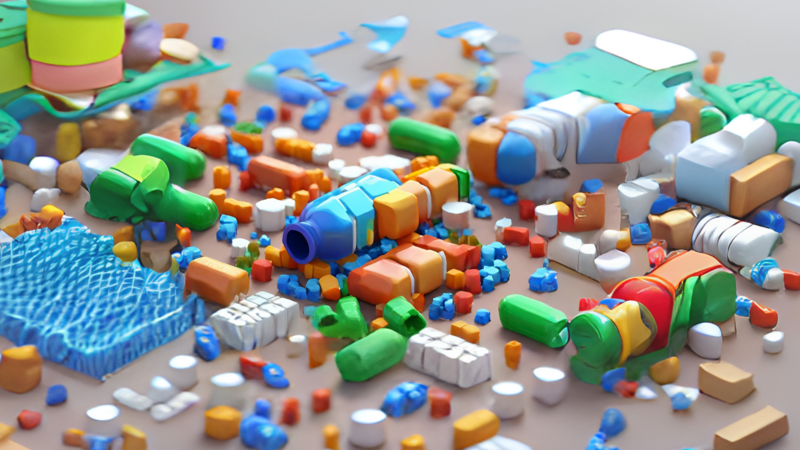Revolutionizing Recycling: The Transformative Potential of Enzyme Mixtures in Tackling Plastic Waste
In our modern world, plastic, known for its durability and versatility, has become a fundamental aspect of human life. From packaging materials to medical devices, plastics have a multitude of applications. However, this pervasive use has led to a formidable global plastic waste challenge. Billions of tons of plastics litter our oceans, landscapes, and cities, posing severe threats to the environment and living organisms. This daunting issue underscores the urgency for innovative and sustainable recycling solutions, among which enzyme-based recycling emerges as a promising candidate.
Enzymes are biological catalysts that accelerate chemical reactions in living organisms. They are typically proteins and play essential roles in various biological processes, including digestion, respiration, and DNA replication. In waste degradation, specific enzymes can expedite the breakdown of plastic materials, transforming them into simpler, reusable compounds.
Researchers have uncovered specific enzymes, such as PETase and MHETase, capable of degrading Polyethylene Terephthalate (PET), a common plastic type used in bottles and other packaging. These enzymes break the ester bonds in the PET polymer, converting it into its monomer forms, which can be efficiently recycled.
Biocatalytic depolymerization employs these enzymes to disintegrate plastic polymers into their basic monomers. This enzymatic breakdown process is more environmentally friendly than traditional mechanical recycling methods, as it occurs under mild conditions, requiring less energy and generating fewer emissions.
Scientists are continuously searching for more efficient enzymes to break down plastics. The discovery and engineering of enzymes like PETase result from meticulous research and technological advancements. Scientists can isolate and enhance the specific enzymes responsible for this process by studying microorganisms that naturally degrade plastic.
The concept of enzymatic cocktails involves combining different enzymes to enhance plastic degradation efficiency. Other types of plastics require different enzymes for degradation, and a mixture of enzymes can work synergistically to break down mixed plastic waste more effectively.
Enzyme-based recycling stands out when compared to traditional recycling methods. Conventional recycling often involves mechanically breaking down plastics into smaller pieces, which can still pose environmental issues and are typically down-cycled, limiting their reuse. Enzyme-based recycling, however, breaks down plastics to their monomeric forms, creating new, high-quality plastic products without adding virgin materials.
The environmental benefits of enzyme-based recycling are substantial. This method operates under milder conditions, significantly reducing energy consumption and greenhouse gas emissions compared to traditional recycling processes. The ability to recycle plastics into their original monomers also diminishes the demand for new plastic production, further lowering the carbon footprint and contributing to a more sustainable planet.
Enzyme-based recycling is not just a theoretical concept; it's making impactful strides in the real world. Companies and research institutions are exploring the application of enzymes in recycling plastic waste, with pilot projects demonstrating success in converting waste plastics back into functional monomers.
Despite the promise, challenges linger in scaling up enzyme-based recycling. Ensuring these enzyme technologies' efficiency, cost-effectiveness, and scalability remains an ongoing pursuit. It’s paramount to overcome these hurdles to realize the full potential of enzyme-based recycling in addressing global plastic waste.
The future beckons brightly for enzyme-based recycling. As research and technology advance, the effectiveness and efficiency of enzyme mixtures in breaking down plastics are anticipated to improve, broadening the scope of plastics that can be recycled enzymatically. This cutting-edge technology promises to substantially reduce plastic waste and contribute to developing a circular bio-economy for plastics, where plastics are responsibly used, recycled, and reused, minimizing environmental impact.
In conclusion, enzyme mixtures stand at the forefront of revolutionizing plastic recycling. By delving into the intricacies of enzyme function and overcoming scaling challenges, a sustainable and efficient pathway for plastic recycling emerges. While obstacles remain, the continued dedication to research and innovation in this arena propels us closer to a world where plastics are not pollutants but a sustainably managed resource, contributing to a healthier planet for future generations.


